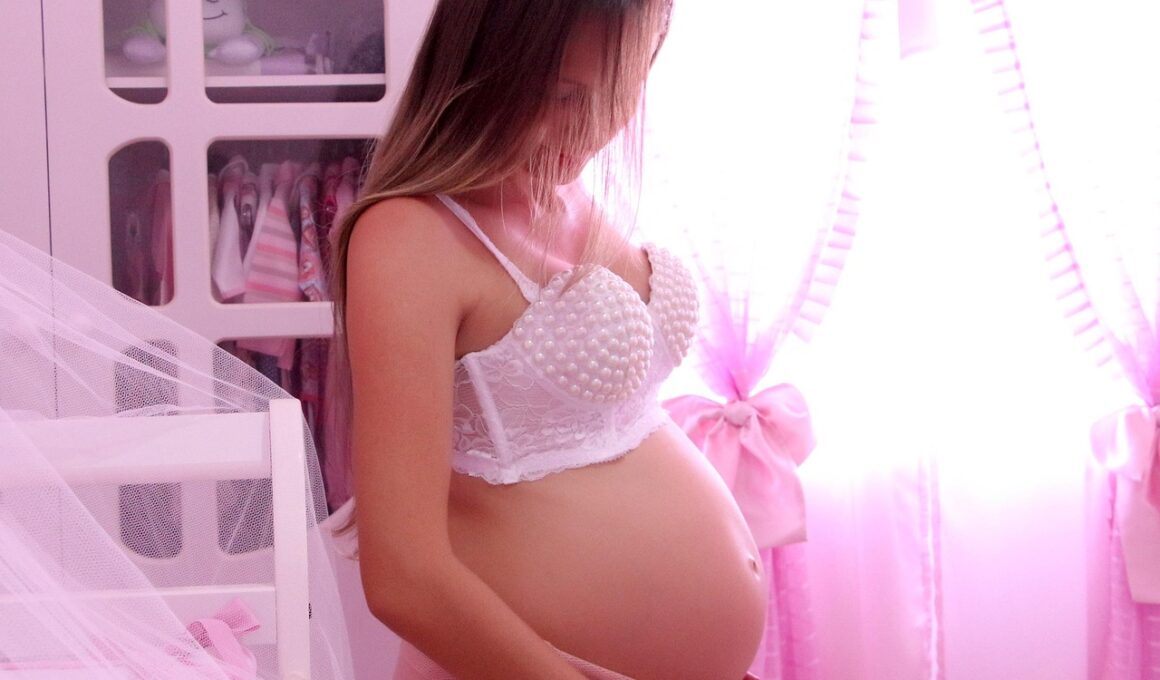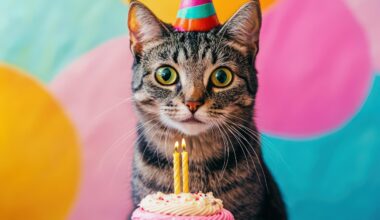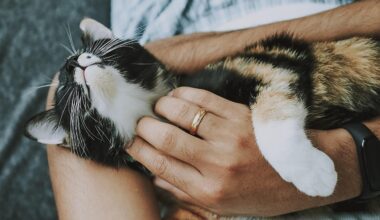Cat Vaccinations During Pregnancy: Safety Guidelines
Vaccinating pregnant cats is a crucial part of responsible cat ownership and ensures both mother and kittens receive essential health protections. Vaccinations are vital for preventing diseases that can be harmful or even fatal. Cats, like all animals, need vaccines to build immunity against harmful pathogens. However, the timing of vaccination during pregnancy can significantly affect the health of both the mother and the developing kittens. Consult with a veterinarian to create the best vaccination schedule that protects your pregnant cat without compromising the health of her litter. Cats should receive their vaccinations before mating to optimize the chance of a healthy delivery. If a cat is already pregnant, many vets will recommend postponing certain vaccines until after the kittens are born. Discussing with a vet is essential in determining which vaccinations are safe to administer during pregnancy. Vaccines like FVRCP and Rabies are particularly vital, but always prioritize the health of your feline throughout her pregnancy. Early veterinary care establishes a foundation for a long, healthy life for both the mother and her kittens.
Understanding the types of vaccines is vital when it comes to pregnant cats. There are generally two kinds of vaccines: core and non-core. Core vaccinations are necessary for all cats, regardless of their lifestyle, as they protect against severe diseases like panleukopenia and calicivirus. On the other hand, non-core vaccines are optional and may be given depending on your cat’s risk factors and lifestyle. Rabies vaccination is often legally required, as it protects against a deadly viral infection. It is advisable to have a clear vaccination history for your cat so that your vet can make informed decisions. Ensure your cat’s previous vaccinations are up-to-date before breeding, and establish a relationship with a veterinarian experienced in feline health during pregnancy. Be aware of the timing of each vaccination to avoid any potential health risks. Kittens generally begin receiving their initial vaccines at around six to eight weeks, but the recommended schedule should be tailored to your specific circumstances. Use these guidelines as a template but adapt them as necessary according to veterinary advice for the light of your cat’s health.
Importance of Regular Vet Checkups
Regular veterinary checkups are vital throughout your cat’s pregnancy. These checkups provide opportunities to monitor both the mother’s and the kittens’ health. Cats can experience various changes during pregnancy, and timely veterinary intervention can prevent complications. The veterinarian will perform health assessments and recommend vaccinations as needed. Regular vet visits allow veterinarians to determine if any adjustments in care should be made during pregnancy. Early detection of potential issues can be pivotal in ensuring safe delivery and healthy kittens. Providing your cat with a consistent routine helps minimize stress and anxiety, contributing positively to her health. Vets can offer nutritional guidance to ensure the pregnant cat receives appropriate levels of vitamins and minerals. They may recommend specific diets enriched with nutrients essential for both the mother and her growing kittens. Overall, establishing a trusting relationship with your veterinarian leads to better outcomes for both your cat and her new family. Prioritize scheduling these important visits to improve overall health and manage care efficiently during your cat’s pregnancy.
While vaccinations are important, it’s also crucial to avoid any unnecessary stress for your pregnant cat. Stress can lead to complications, and creating a calm environment can significantly benefit her well-being. Introduce your cat to a quiet space where she can give birth with minimal disturbances. Make sure she has access to her favorite rest spots and cozy beds to relax. Avoid bringing in loud visitors or other animals during this sensitive time. Regular play and gentle interactions can improve her mood and help with emotional stability. Additionally, ensure your cat has ample access to fresh water and nutritious food to support her increasing needs as she carries her kittens. Understanding your cat’s behavior and respecting her space keeps her comfortable during pregnancy. Note any changes in her eating habits, alongside her physical appearance, which may warrant a call to your veterinarian. Open lines of communication with your veterinary team can keep you informed about your cat’s needs, making sure both mother and her kittens develop naturally and healthily throughout her pregnancy journey.
Post-Vaccination Care
Caring for your cat after vaccinations is as important as the vaccination process itself. Keep an eye on your cat after she receives any vaccine, as some animals can experience mild side effects. Common reactions include lethargy, reduced appetite, and slight swelling at the injection site. While these symptoms usually pass within a day or so, persistent or severe reactions should be immediately reported to a vet. Providing a calm, stress-free environment after vaccination helps them recover faster. Monitor your cat closely within the first 24 hours for any unusual behavior or reactions. Offer her favorite treats and lots of affection, making her feel secure and comforted. It’s also crucial to continue providing a well-balanced diet to maintain her health during the recovery period. Remember to maintain regular communication with your veterinarian regarding any concerns that arise after vaccination. Armed with information and understanding, you can support your pregnant cat’s health by effectively managing her post-vaccination care. This proactive approach fosters a nurturing atmosphere for her and her kittens to ensure a successful pregnancy and bright future.
It’s also vital to educate yourself about specific vaccine schedules based on your cat’s lifestyle and exposure risk. Indoor cats may need different vaccinations than outdoor cats, as outdoor cats might be exposed to more harmful pathogens. Therefore, discuss your cat’s environment with your veterinarian to better tailor their vaccination needs. Always ensure that vaccinations are given according to the recommended schedule to avoid missing out on critical protections. Additionally, keeping track of your cat’s vaccination records is essential for future veterinary visits. These documents can help provide continuity of care and inform your vet about past vaccinations. If problems arise concerning your cat’s health during pregnancy or afterward, having a comprehensive vaccination record can assist your veterinarian in making the right decisions. Staying organized and informed about your cat’s vaccination status creates an easier path for future health care. Investing time in managing your pet’s health will ultimately benefit both her and her upcoming litter, allowing you to journey together through a wonderful and loving pet-parent experience.
Conclusion on Cat Vaccination and Pregnancy
In conclusion, understanding cat vaccinations during pregnancy is essential for every cat owner looking to ensure the health of their pregnant feline. Vaccination is a cornerstone of animal well-being and significantly contributes to the health and vitality of both the mother and her kittens. Discuss vaccination schedules, types, and safety with a professional veterinarian to ensure you’re prepared for successful cat parenting. Address any concerns regarding specific vaccines and their implications during pregnancy. Regular checkups and a calm home environment nurture the mother’s health, establishing a healthy foundation for her kittens. A comprehensive approach regarding your cat’s health will pay off in ensuring that she delivers happy and healthy kittens. Keep a comprehensive record of her vaccinations, and stay in close contact with your veterinarian for ongoing advice and care. With the right follow-through, you can successfully navigate the journey of pregnancy, creating a loving and safe environment for your cat and her babies. Embrace your role as a responsible cat owner and invest in understanding these vaccination guidelines to support your lifelong commitment to your feline friend.
In conclusion, understanding cat vaccinations during pregnancy is essential for every cat owner looking to ensure the health of their pregnant feline. Vaccination is a cornerstone of animal well-being and significantly contributes to the health and vitality of both the mother and her kittens. Discuss vaccination schedules, types, and safety with a professional veterinarian to ensure you’re prepared for successful cat parenting. Address any concerns regarding specific vaccines and their implications during pregnancy. Regular checkups and a calm home environment nurture the mother’s health, establishing a healthy foundation for her kittens. A comprehensive approach regarding your cat’s health will pay off in ensuring that she delivers happy and healthy kittens. Keep a comprehensive record of her vaccinations, and stay in close contact with your veterinarian for ongoing advice and care. With the right follow-through, you can successfully navigate the journey of pregnancy, creating a loving and safe environment for your cat and her babies. Embrace your role as a responsible cat owner and invest in understanding these vaccination guidelines to support your lifelong commitment to your feline friend.


